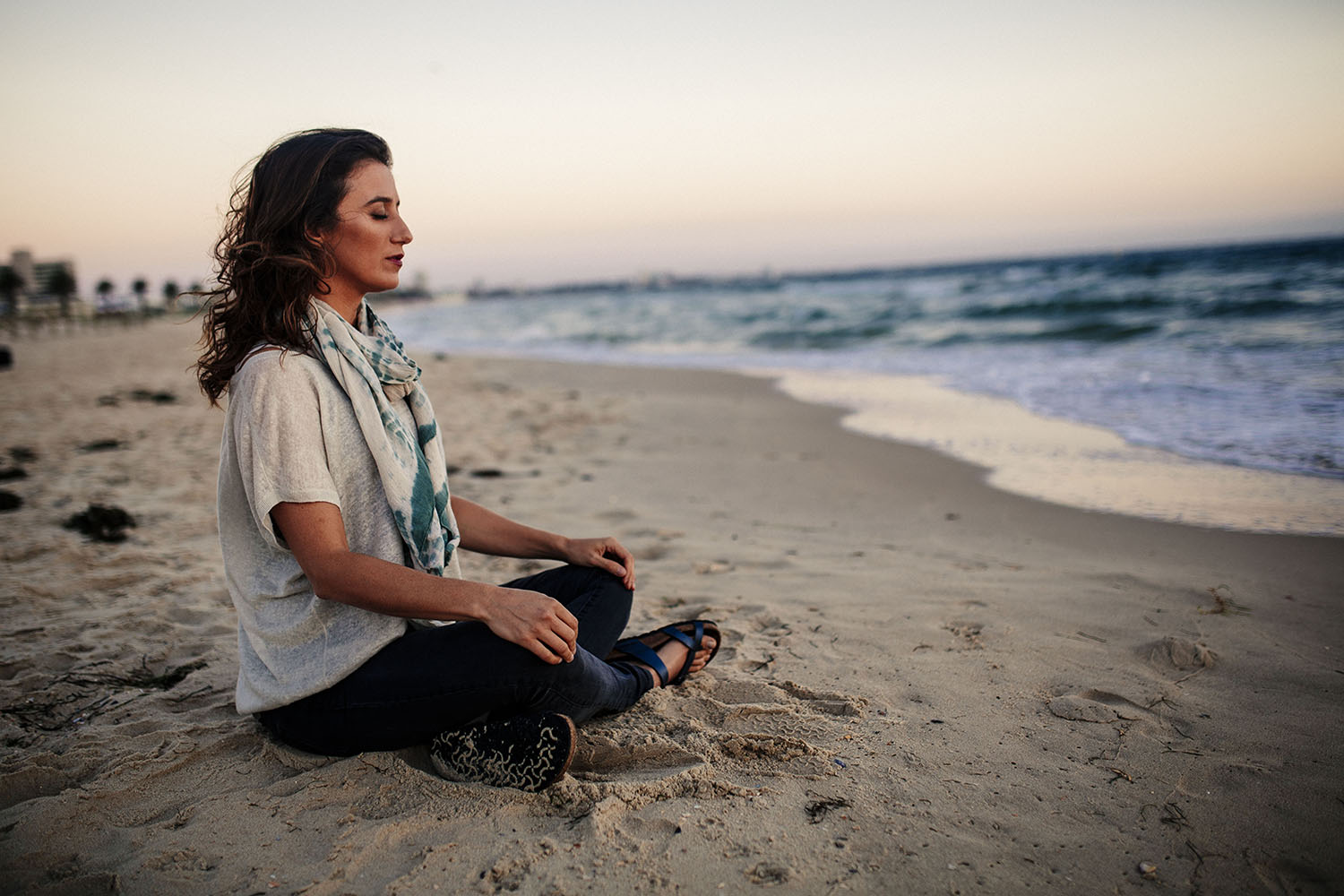Whether you’ve been trying to quit smoking, stop yourself from spending hours mindlessly scrolling through Instagram or, prevent yourself from unconsciously reaching for the sugar-fuelled snacks, breaking bad habits can be incredibly difficult.
Psychiatrist, meditation teacher and founder of online global challenge Mindful In May, Dr Elise Bialylew, tells Now To Love that the key to breaking your bad habits begins with taking note of every time you’re doing something you’d rather not be doing being aware that you’re doing things you’d rather not be doing – in other words, self-awareness.
And how can you begin to build your self-awareness?
Through the practice of mindfulness, Elise says.
While you’ve probably heard the word mindfulness thrown around a lot, what actually is it?
Elise describes it as “a form of mental training where we’re training our attention to be more present and with doing that we’re creating greater self-awareness.
“In other words, we’re becoming more aware of what’s happening from moment-to-moment in our lives, whether that’s within us or outside us – through our interaction with people or what’s going on in the outside world.”
Psychiatrist, meditation teacher and founder of Mindful in May. Dr Elise Bialylew. (Image: Supplied)
And if you don’t notice your behaviours, you have no chance of changing them, Elise explains.
A behaviour, by definition, is what we do on auto pilot, Elise says, “They’re things that we’ve repeated enough times that they get embedded into the deeper parts of the brain which allow us to do things without actually being aware or present.”
Sometimes this can be a good thing, like how as a New Zealander we automatically drive on the left-hand side of the road without even thinking so you can just pay attention to the road instead, because the act of driving on the left has become so automatic, it’s become a habit.
However, on the negative side of things, there are things that we do repeatedly that we don’t necessarily want in our lives, like smoking or eating lots of sugar, so this requires our constant attention to change these habits.
“That’s where mindfulness can really offer us a lot of help,” Elise says.

Do you find yourself reaching for the chocolate when you’re bored, without even realising? Being more mindful can help you notice yourself wanting to reach for it before it happens, helping you break bad habits. (Image: Getty)
Elise explains that through mindfulness meditation you’re actually changing the architecture of the brain to be able to focus more, pay attention and have a better chance of catching yourself.
She says, “You can then ask yourself, ‘Is this aligned with my values? Is it actually the behaviour I want to be doing or not?’
“That’s the first step to change.”
And the perfect place to start? Mindful in May.
Mindful in May is a one-month online global fundraising campaign founded by Elise which encourages people who are new to mediation or haven’t been able to create a habit out of it, to come on board and get an all-inclusive online programme delivered to them every day of May.
You get all the resources you need, from guided meditation to interviews from the world’s best meditation teachers, scientists and wellbeing leaders.
It’s a 10-minute-a-day challenge, which people can get sponsored for, with all proceeds going towards providing clean water to developing countries.
Elise says she came across mediation when she began experiencing the stress of working as a doctor and realised she needed to find something that would help manage her stress levels and build her resilience.

Elise says practicing mindfulness will help you break your bad habits, as you foster self-awareness. (Image: Supplied)
Coming from a scientific background as a psychiatrist, she also had the opportunity to attend conferences and began to hear about the scientific research that had been conducted around mindfulness and how it could change the brain and even the way it could help to reduce the stress-related ageing that we experience.
Elise began bringing mindfulness into her practice as a psychiatrist before she realised it could be bigger and wanted to be able to offer the tool more widely, not just one-on-one or in small groups.
“The Mindful in May campaign was really about harnessing three passions I had which were: mindfulness, technology and the way we can use technology to create community and social impact,” she says.
“The World Health Organisation has stated depression is now the leading cause, globally, of mental illness worldwide, and we know that one-in-nine people on the planet don’t have access to clean water.
“These two statistics together are pretty shocking and so Mindful in May has that sort of game-changing aim to address these two global problems – mental health and global poverty.”
The world-class mediation programme begins on May 1st, with a free five-day trial from April 8.
Dr Elise Eialylew is the author of #1 bestselling, scientifically backed mindfulness book The Happiness Plan and founder of Mindful in May, the world’s largest online global mindfulness campaign that teachers thousands of people to meditate, while raising funds to build clean water projects in the developing world.
Visit mindfulinmay.org for more information.
 Supplied
Supplied

